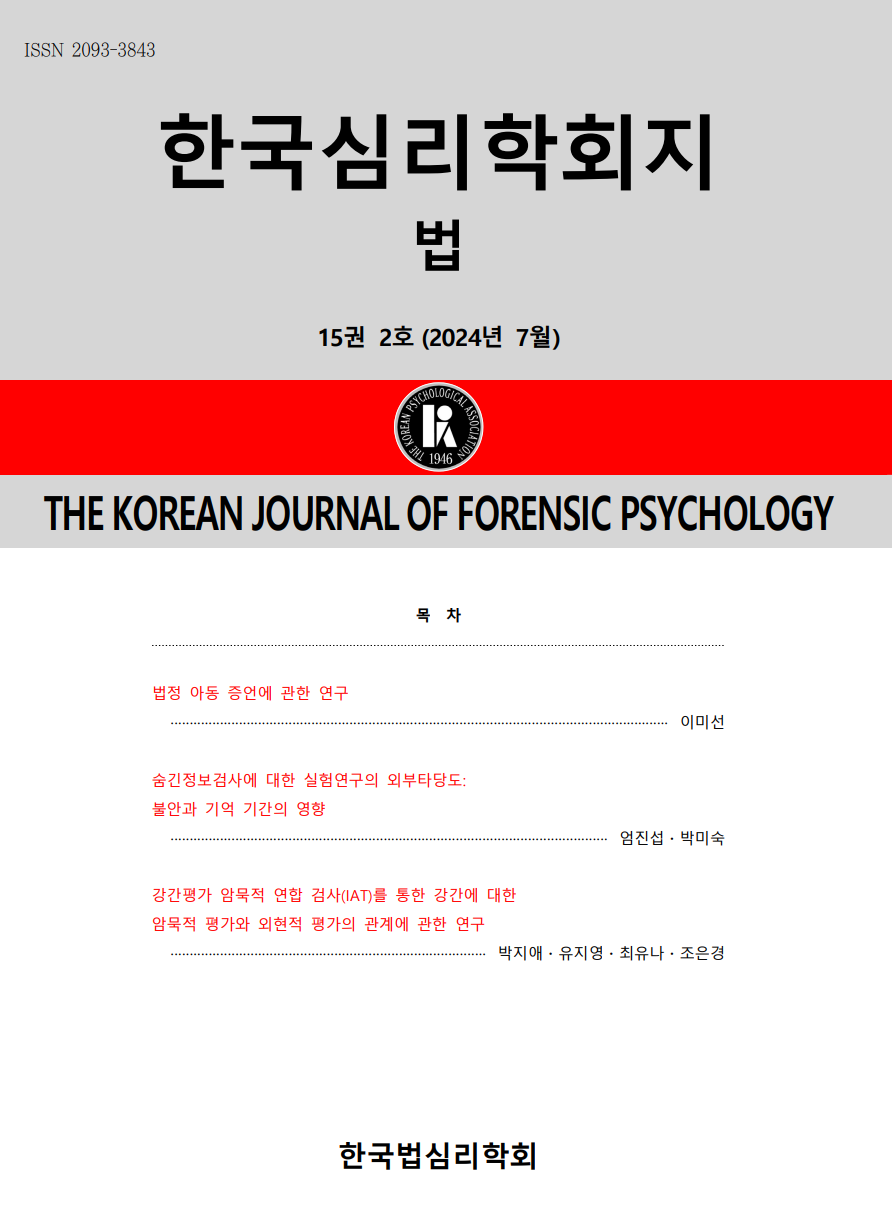open access
메뉴
open access
메뉴 ISSN : 2093-3843
ISSN : 2093-3843
The purpose of this study is to examine some factors affecting the decision-making process of white-collar crime. In a between-subject experiment, 102 adult white-collar workers were randomly assigned to a financial pressure condition or tit for tat strategy condition. Participants went through a decision-making process in a modified iterated prisoner’s dilemma for a white-collar crime scenario to earn points. The obtained score indicated the risk of committing a crime. The lower the score, the higher was the risk of participating in a crime. The results showed that participants who received only tit for tat strategy information without financial pressure instructions showed the lowest risk of participating in a crime, and those who received only financial pressure without the strategic information had the highest risk of participating in a crime. In addition, those who received the financial pressure instructions were more likely to participate in a crime than those who did not receive financial pressure instructions regardless of the provision of strategic information. The results of this study propose the need for measures to legally relieve financial pressure, the need for education on white-collar crimes for office workers, and the need for a decision-making structure within the enterprise that is not dogmatic but cooperative and mutually verifiable.